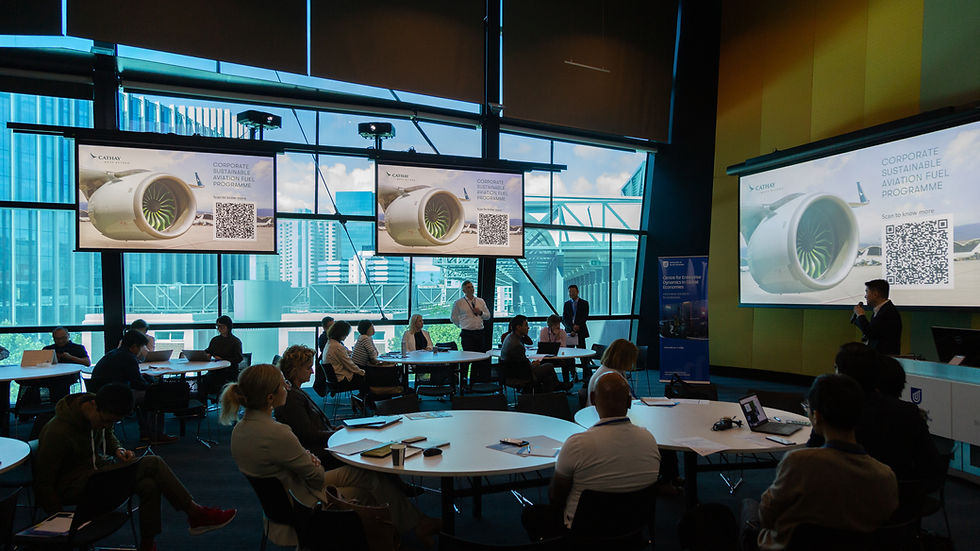
GET INVOLVED
TODAY!
Unlike ground transportation, aviation faces limited alternative fuel options. Sustainable Aviation Fuels (SAF) have the potential to reduce carbon emissions by up to 80%, making them crucial for achieving net-zero greenhouse gas emissions in Australia by 2050.
UPCOMING PROJECTS.
The project team will organise and deliver a series of eight events in Australia and China to facilitate knowledge exchange on sustainable aviation fuel (SAF) and promote cooperation and partnerships among industry and policy stakeholders. This initiative aims to capitalise on business opportunities associated with the commercialisation of SAF.
10%
Japan
Japan mandates that 10% of SAF be used for international flights departing from Japanese airports by 2030.
5%
UK
Singapore plans to implement a SAF levy on departing flights, with a target of 1% in 2026, rising to 3–5% by 2030.
2%
Singapore
The UK will implement its SAF mandate in 2025, starting at 2% of total jet fuel demand and increasing to 10% by 2030.
MAKE AN IMPACT.
Aviation experts from the University of South Australia (UniSA) will work with their Chinese counterparts over the next two years to develop a sustainable aviation biofuel industry in both countries.
The collaboration, announced by the Department of Foreign Affairs and Trade (DFAT) on Saturday, comes on the back of a $1.7 billion Federal Budget allocation to prioritise renewable fuels for the aviation industry over the next decade.
UniSA Aviation Professor Shane Zhang has been awarded a $230,000 National Foundation for Australia-China Relations grant to lead the project, exploring the commercial opportunities of using bio feedstock to replace conventional kerosene jet fuels with ‘green’ fuel.
Sustainable aviation fuels (SAFs) are still in their infancy, accounting for less than 1% of jet fuels worldwide, although the European Union (EU), Singapore, the US and UK are moving towards mandating SAFs within the next few years.
Prof Zhang says the Federal Government budget announcement follows the establishment of the Australia Jet Zero Council in 2023 to deliver net-zero aviation in Australia, supported by a $30 million funding injection.
“Sustainable aviation fuels can potentially cut carbon emissions by up to 80% and are essential if we are to achieve net-zero greenhouse gas emissions in Australia by 2050,” Prof Zhang says.
The alternative liquid jet fuel is derived from several sources or feedstock, including waste oil and fats, woody residues, algae and municipal waste. It needs to be mixed with conventional fuel (50%) to avoid any modifications to the engine and aircraft, in line with international regulations.
While these renewable fuels are not yet produced in Australia, Jet Zero Australia is working with US biotechnology company LanzaJet to build a new SAF facility in north Queensland, and Wagner Sustainable Fuels and Boeing Australia are also collaborating on a site in Toowoomba. The NSW Government has pledged up to $100 million to start local production.
Aside from the $1.7 billion, the Albanese Government has also allocated $18.5 million over four years to develop a certification scheme for sustainable aviation fuels and renewable diesel. A further $1.5 million will go towards a two-year analysis of the costs and benefits of introducing mandates.
“There is a lot of potential to produce sustainable aviation fuels in Australia and China, as both countries have large quantities of bio feedstock and the market is untapped,” Prof Zhang says.